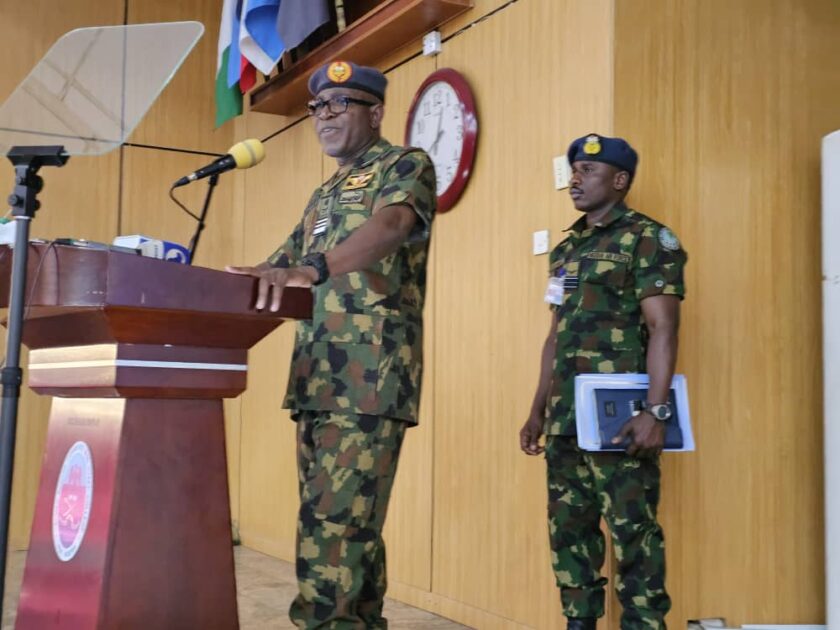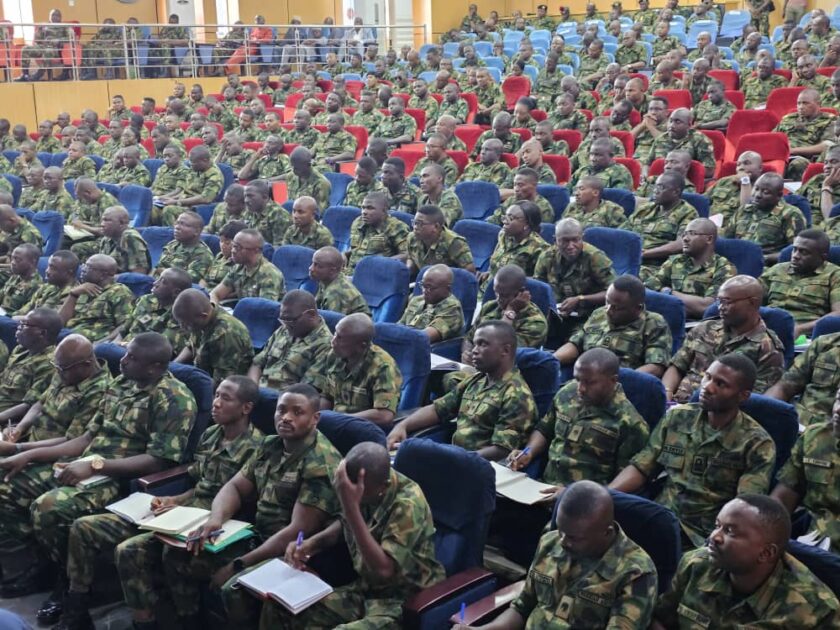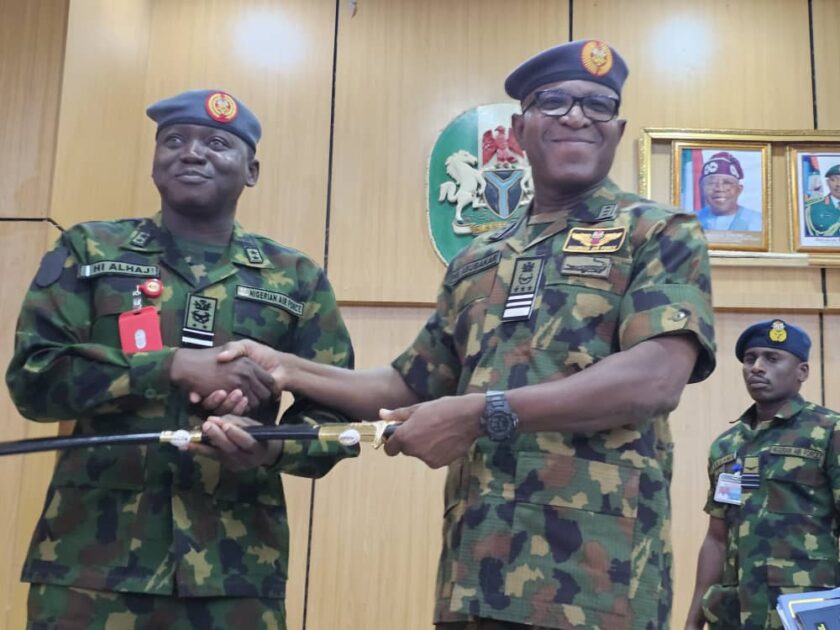The Chief of Air Staff, Air Marshal Hasan Abubakar, has emphasized the critical importance of his command philosophy during his recent address at the Armed Forces Command and Staff College in Jaji, Kaduna State, on September 21, 2023. Under the theme, “The Future of Air Warfare in the Nigerian Air Force – My Command Philosophy,” he outlined the key principles guiding his vision for the Nigerian Air Force (NAF).




CAS Abubakar underscored the significance of his philosophy in preparing the NAF for future air warfare, emphasizing that a failure to prepare adequately for the future would result in a reactive rather than proactive approach to national security issues. He identified several factors that would shape the nature of future air warfare, including internal and external threats, economic conditions, and the NAF’s air power capabilities.
In alignment with his philosophy, CAS Abubakar presented the key enablers and their impact on the NAF:
- Optimizing Force Structure and Establishment: The NAF, under his leadership, is acquiring additional platforms, such as Unmanned Aerial Vehicles for real-time intelligence, surveillance, and reconnaissance, as well as precision strike capabilities. Furthermore, efforts are underway to replace medium and heavy airlift capabilities to enhance mobility. A capabilities-based assessment of the NAF is nearing completion, which will improve operational effectiveness.
- Deliberate Training and Mission-Oriented Force Development: Human capacity development in the NAF is tailored to meet assigned tasks and address current and future capability gaps. Approximately 1,476 personnel are currently enrolled in various training programs, both domestically and internationally, with a focus on merit-based selections.
- Proactive Logistics Support and Strong Maintenance Culture: The NAF is implementing a comprehensive aircraft maintenance planning system, ensuring advanced compilation and processing of spares and consumables requirements for future aircraft inspections. This approach guarantees aircraft availability for rapid combat operations in line with national security objectives.
- Prioritizing Research and Development with Cutting-Edge Technology and Strategic Partnerships: The NAF is making strides in domestic manufacturing of necessary capabilities through research and development activities and the utilization of cutting-edge technologies. Notably, the Air Force Research and Development Center plays a significant role in this endeavor.
- Maintaining a Highly Motivated Force through Welfare and Infrastructural Renewal: CAS Abubakar recognizes the importance of creating an enabling environment for NAF personnel to achieve their personal and organizational goals. Initiatives include addressing accommodation shortages, issuing new uniforms and accoutrements annually, and ensuring prompt payment of entitlements. These efforts aim to maintain NAF personnel in a state of psychological readiness for both current and future air warfare.
In conclusion, CAS Abubakar highlighted the challenges that could hinder NAF’s operational effectiveness, such as economic constraints, limited technological resources, and insufficient strategic alliances. Nevertheless, he emphasized the NAF’s responsibility to overcome these challenges and ensure combat readiness for present and future battles.

